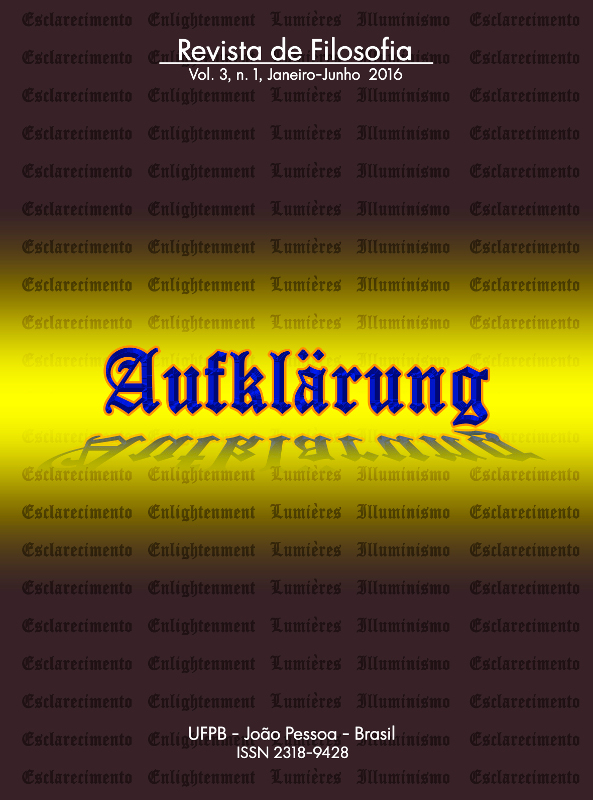The Hispanic thought and the questions concerning cultural identity
DOI:
https://doi.org/10.18012/arf.2016.26480Keywords:
Culture, philosphy, identity, interculturalism, ReasonAbstract
The philosophical hispanicthought in the second half of 20th. ha mdepossible one process for culturalemancipationand deep philosophicalreflections, in order to get the sense andreaching an authentic philosophy in SouthAmerica. We can even say that after thecontrol of a conciencious process of theAmerican character, what is in progress isseeking an identity of the Latinoamericanbeing, wich under my analysis, only it willget reason if be integrated in an culturalintegration process. It must ever togenerate its own circunstances from ancommum "ethos".Downloads
References
BETANCOURT, Raúl Forne. Interculturalidad, Género y Educación, IKO Verlag fur Interkulturelle kommunikation, Edition OKOglobal, Frankfurt am Main, 2004.
BONDY, Salazar. Historia de las ideas en el Perú contemporáneo. Lima: Moncloa, 1965.
BONDY, Salazar. La cultura de la dominación, en Perú Problema, Lima: Moncloa, 1968
GALVÁN, Enrique Tierno. ‘Erotismo y trivialización’ in Desde el espectáculo a la trivialización, Editorial Tecnos, S.A. Colección Ventana Abierta, Madrid, 5ª edición, 1987.ferências gerais
GASSET, Ortega y. La Rebelión de las Masas, Espasa-Calpe, Selecciones Austral, Madrid, 5ª edición, 1984.
GASSET, Ortega y. El Tema de nuestro tiempo, Espasa Libros S.L.U., Col. Austral, Madrid, 1ª edición, 2010.
NICOL, Eduardo. Historicismo y existencialismo. La temporalidad del ser y la razón, Madrid: Tecnos, 1950; segunda edición, corregida, México: Fondo de Cultura Económica, 1960.
NICOL, Eduardo. Metafisica de la expresión, Fondo de Cultura Económica, 1957; nueva versión, México: Fondo de Cultura Económica, 1974.
NICOL, Eduardo. El problema de la filosofia hispânica, Madrid: Tecnos 1961; segunda edición, México: Fondo de Cultura Económica, 1998.
Additional Files
Published
How to Cite
Issue
Section
License
Journal general policy
1.This journal works under a Creative Commons License aplied to online journals. That icence can be read in the following link: Creative Commons Attribution 4.0 International (CC BY 4.0).
2.Accordingly to this License, a)the journal declares that authors hold the copyright of their articles without restrictions, and they can archieve them as post-print elsewhere. b)the journal allow the author(s) to retain publishing rights without restrictions.
Metadata Policy for information describing items in the repository
1. Anyone may access the metadata free of charge at anytime.
2.The metadata may be re-used in any medium without prior permission, even commercial purposes provided the OAI Identifier or a link to the original metadata record are given, under the terms of a CC BY license refered for the Journal.







































